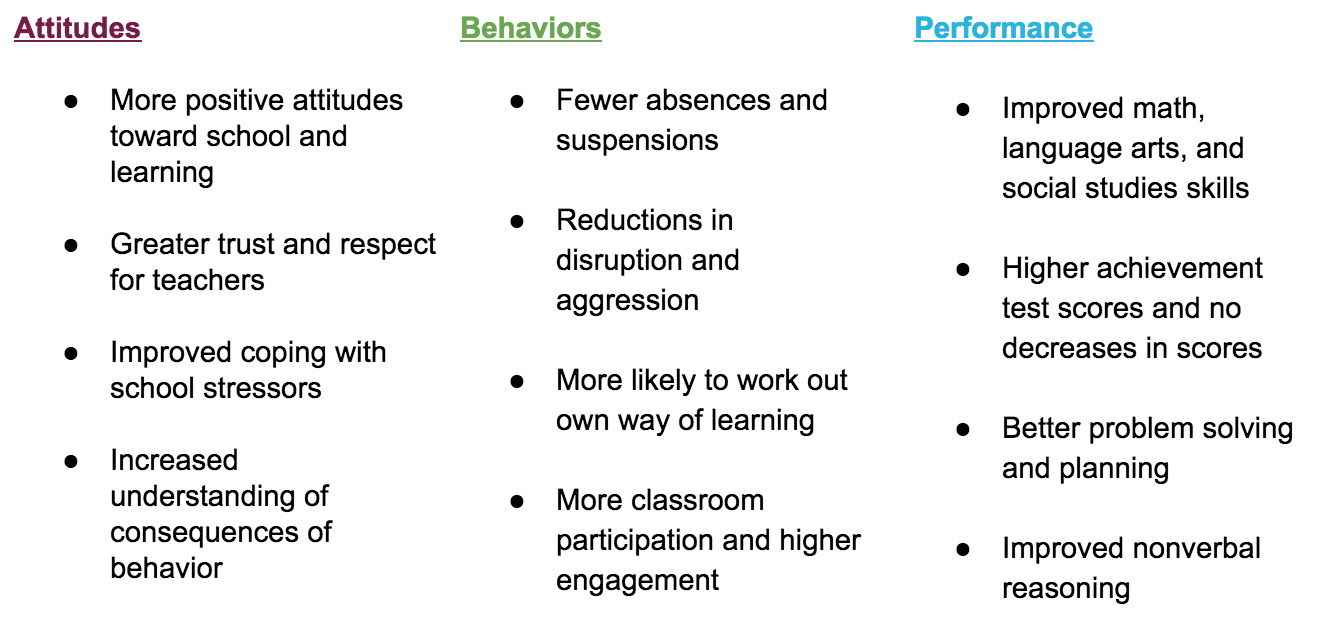Teachers Need SEL Training Too
In recent years, educators across the country have begun to recognize the benefits of Social Emotional Learning. The five competencies of self-awareness, self-management, social awareness, relationship skills, and responsible decision making have been acknowledged as critical to achieving academic success.
According to a study by CASEL, students who receive SEL instruction score on average of 11 percentile points higher on academic achievement assessments than students who did not participate in SEL programs. University of Cincinnati and Rutgers University found that SEL in schools lead to a series of positive attitude, behavioral, and performance changes including:
Inspired by the overwhelming evidence of benefit to students, schools and districts have begun to add SEL into their curricula. Research shows, however, that to achieve positive results for their students, schools need to begin by invest in training their teachers. Teachers can only teach Social Emotional Learning effectively if they receive high quality pre-service and ongoing SEL training themselves.
Modeling behavior is key to teaching SEL. The Aspen Institute Education and Society Program puts it this way, “Just as teaching trigonometry would be difficult for someone who does not understand sine and cosine, teaching students how to collaborate, respect the views of others, and manage their emotions would be challenging for adults who don’t possess these skills themselves.” Teachers with higher SEL skills have better relationships with students, improve classroom management, and report lower levels of stress. Without proper training for teachers, an SEL curriculum is simply words on paper.
At the Guild, we work with teachers to build a robust toolkit of social emotional skills through our authenticity-focused SEL professional development approach. We broaden teachers’ self awareness through a series of self-reflection exercises and encourage them to explore and develop their authentic selves using visual art, metaphor, and storytelling and other creativity based tools. We guide educators through self-regulation techniques and help them integrate them into their classroom routines. We practice cultivating empathy, building trust, and understanding the unique and complex stressors of the school environment. The core of our philosophy is that happier, healthier, teachers produce happier, healthier, and more productive students.
For more information on our upcoming trainings including our annual Children and Authenticity conference visit our page for educators.
Questions? Comments? Email us at contact@childrensartsguild.org or call (347) 644-0452


